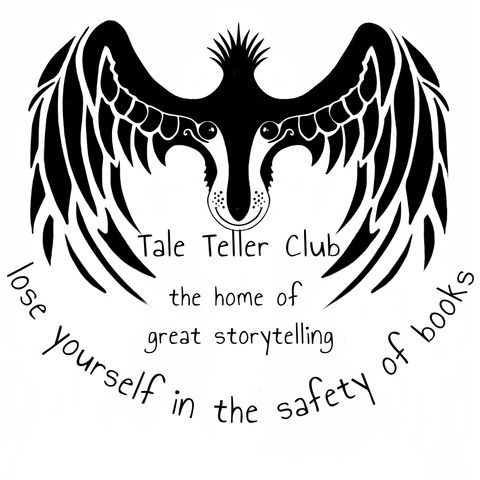Exploring Five of the Most Famous Sci-Fi Books and What Makes Them Enduring ClassicsScience fiction has produced some of the most thought-provoking and imaginative works in literature, capturing readers with stories that delve into futuristic possibilities, ethical quandaries, and new dimensions of humanity. Let’s dive into five of the genre’s most iconic books, each of which has shaped sci-fi and attracted legions of fans for generations.Dune by Frank HerbertIn Frank Herbert’s Dune, we enter the desert planet Arrakis, a place where sand stretches endlessly under twin moons and is governed by the powerful noble House Atreides. The story follows Paul Atreides, heir to a noble family caught in the middle of a galactic power struggle over the planet’s most valuable resource—spice, a powerful substance with mind-altering and life-extending properties. This epic saga combines political intrigue, religion, environmental themes, and mysticism, making it one of the richest and most layered narratives in science fiction. Dune is celebrated for its intricate world-building and its profound exploration of themes like power, human survival, and ecology. It questions what leadership should mean and how we impact the environments we inhabit. Its popularity endures because of Herbert's visionary portrayal of a complex universe that still feels relevant, mirroring real-world issues around resources, religion, and human nature.1984 by George Orwell George Orwell’s 1984 presents a chilling vision of a totalitarian future where "Big Brother" watches everyone, controlling not only actions but thoughts. Set in a dystopian society, the novel follows Winston Smith, an ordinary man who becomes disillusioned with the oppressive regime and tries to rebel, only to encounter the terrifying strength of the Party’s psychological control. This novel introduced terms like “Big Brother,” “doublethink,” and “Newspeak,” which have entered common vocabulary as symbols of government surveillance and propaganda.The lasting appeal of 1984 lies in its eerie relevance. Orwell’s portrayal of a society under constant surveillance, where truth is manipulated by those in power, resonates deeply in the modern world. The book's prescient warnings about the dangers of authoritarianism have made it a timeless work that speaks to readers across generations, providing a haunting look at the potential consequences of unchecked power.The War of the Worlds by H.G. WellsH.G. Wells’ The War of the Worlds is one of the earliest and most influential novels depicting alien invasion. Set in Victorian England, the story recounts the terrifying arrival of Martians on Earth, who unleash their advanced technology and nearly wipe out humanity. The novel is told from the perspective of an unnamed narrator, chronicling the chaos and horror as humankind realizes its vulnerability to a superior extraterrestrial force.This groundbreaking novel captured the imagination of readers with its thrilling story and examination of human resilience. The War of the Worlds became famous not only for its terrifying depiction of extraterrestrial conflict but also for its commentary on colonialism and human arrogance. It has inspired countless adaptations and remains popular because it plays on universal fears of the unknown while questioning humanity's place in the universe.The Left Hand of Darkness by Ursula K. Le Guin Ursula K. Le Guin’s The Left Hand of Darkness transports readers to the planet Gethen, where its inhabitants are ambisexual, adopting different sexual roles at different times. The story follows Genly Ai, an envoy from Earth who arrives on Gethen to encourage the planet to join a galactic alliance. As he navigates this new society and its customs, he forms a deep, complex bond with a native named Estravan, confronting his own biases and preconceptions about gender and human connection.The Left Hand of Darkness is widely regarded as a masterwork for its revolutionary exploration of gender and identity, challenging traditional ideas about sexuality and relationships. Le Guin’s nuanced world-building and empathetic character development have cemented the novel’s place in sci-fi history. It’s popular not only for its imaginative take on gender but also for its humanistic themes, which resonate with readers in an increasingly diverse world.Neuromancer by William GibsonIn Neuromancer, William Gibson introduces us to Case, a washed-up computer hacker hired for one last job—a job that pulls him into the depths of cyberspace and artificial intelligence. This novel helped establish the cyberpunk genre, blending a gritty, neon-lit future with themes of technology, virtual reality, and corporate control. Set in a world where humans can plug into cyberspace and manipulate data as they might physical objects, Neuromancer explores the intersection of humanity and technology.Neuromancer gained a devoted following for its groundbreaking portrayal of cyberspace, a term Gibson coined, and its exploration of how technology could shape identity, society, and reality itself. Gibson’s bleak, fast-paced style resonated with readers who saw his dystopian vision as a natural extension of real-world trends. Its influence extends into modern sci-fi, helping shape the digital and cyberpunk aesthetics seen in countless films, games, and novels today.These five novels, each unique in its vision and impact, share an ability to transport readers to strange and fascinating worlds while holding a mirror up to our own. From exploring the nature of humanity in futuristic societies to asking questions about technology, power, and survival, these books remind us of science fiction’s power to illuminate the human experience through the lens of the extraordinary. Aspiring sci-fi authors can look to these timeless works not just as stories, but as inspirations for expanding our understanding of what’s possible—and of ourselves.
show less

